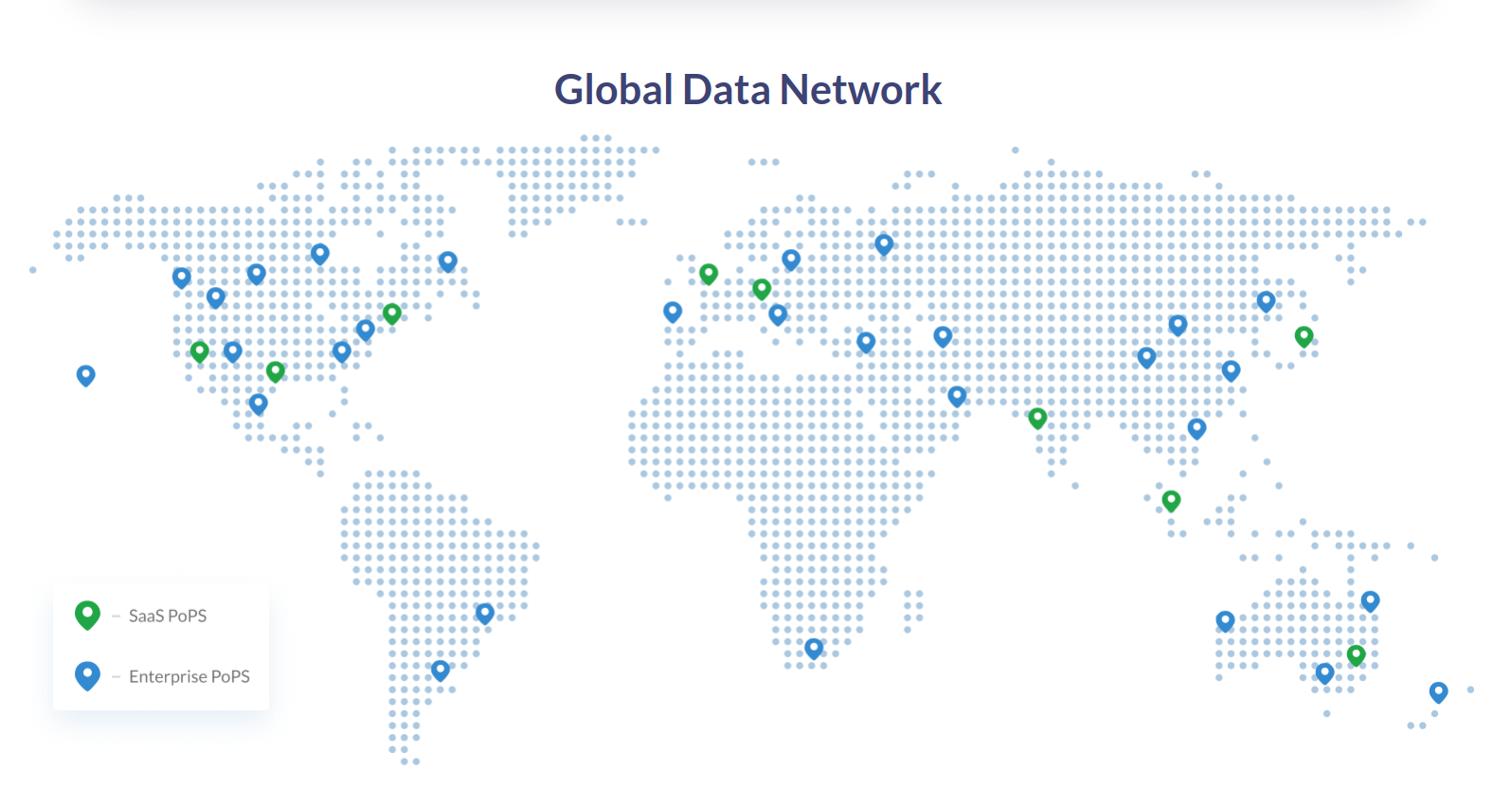 CLOUD
CLOUD
 CLOUD
CLOUD
 CLOUD
CLOUD
Edge computing startup Macrometa Corp. said today it has closed on a new $20 million round of funding less than eight months after announcing its initial seed funding round.
Pelion Venture Partners led the Series A round, which also saw participation from existing investors DNX Ventures, Benhamou Global Ventures, Partech Partners, Fusion Fund, Sway Ventures and Shasta Ventures, bringing its total amount raised to $29 million.
Macrometa has created a Global Data Network on which enterprises can build and run geographically distributed applications, ensuring minimal latency no matter where in the world their users are. So, for example, a financial services company might use Macrometa’s platform to build an application that tracks different stock markets in real-time. Alternatively, a company might want to offer a software-as-a-service application that serves customers in different regions of the world.
Macrometa’s platform ensures that such applications aren’t affected by latency issues. An app that’s hosted in a U.S. data center might have issues because every request from international users has to travel back and forth between their country and the U.S. for processing.
Macrometa offers a network of 175 edge regions where its customers can host their apps, which means they’re physically much closer to end users. That ensures a significant reduction in latency, no matter where application users are based, the company says.
At the heart of Macrometa’s platform sits a cloud-based and globally distributed NoSQL database. That’s combined with a low-latency stream data processing engine and a functions-as-a-service runtime to create a simple and elastic, serverless cloud, the company says.
Customers can build their apps on this platform and then host them in the edge regions closest to their users. Macrometa’s Global Data Network will keep records in each region, regularly synchronizing them to ensure there are no inconsistencies. Alternatively, users can specify that certain data is not shared in order to adhere to regulations that require it must be stored on local servers.
Macrometa co-founder and Chief Executive Chetan Venkatesh told SiliconANGLE that the company can deliver such wide geographic coverage by sourcing its network, infrastructure and footprint points of presence from seven different global cloud providers. He said Macrometa’s proprietary “edge native” serverless stack sits atop this mix of cloud providers to abstract away all of the complexities and differences between the various services.
“So our customers only see simple, serverless APIs that they incorporate into their apps and systems,” Venkatesh said. “This enables Macrometa to provide a globally distributed environment for cloud apps that can run not in one data center or cloud region, but across the entire footprint of locations at close proximity to users and devices.”
Venkatesh made some big claims about Macrometa’s edge network. He said the mean roundtrip time for a user that’s running an app on their laptop or smartphone is less than 50 to 75 milliseconds globally — around 50 to 100 times faster than running an app in a public cloud.
Enterprises can choose to build a geographically distributed application back end themselves on major public cloud platforms such as Amazon Web Services, Google Cloud or Microsoft Azure. But Venkatesh said that doing so is incredibly complicated for all but the biggest enterprises. The problem, he said, is that although the big clouds do indeed offer many physical data center locations globally, their software stacks present each region as a single, separate silo for application developers to build on.
“The cost and complexity and potential security issues that silos cause is monumental,” Venkatesh insisted. “Macrometa simplifies all of this. When an application runs on the GDN instead of a conventional cloud, it runs across 175 data centers simultaneously, automatically distributing the application data or state for better performance, availability, scale and guaranteeing that all data centers around the world see the same data at a given point in time.”
Venkatesh said Macrometa’s other advantage over going it alone on the public cloud is its “true edge-native architecture” that is built to fix problems with real-time data ingest and analytics. The problem, he explained, is that existing cloud databases, data warehouses and data lakes are mostly designed for batch processing to provide historical insights on what happened yesterday, last week or last year.
As a result, they can’t answer questions about what is happening now, what just happened or what may happen, he said. And these are the kinds of insights that are absolutely necessary for new workloads such as artificial intelligence and machine learning.
“Next-generation applications in e-commerce, manufacturing, supply chain, personalized interactive media, cybersecurity and gaming all need these real time capabilities,” Venkatesh said. “The current cloud titans are unable to serve emerging enterprise demands for low latency, global application deployment with close proximity to end users and devices, and intelligent data management in a world where data is increasingly becoming regulated by nation states.”
Looking ahead, Venkatesh said Macrometa will use today’s funding primarily to accelerate customer acquisition. He said the company already serves some of the world’s “largest telecom operators,” as well as various web-scale e-commerce providers and software-as-a-service firms, and is hoping to add to that list. Macrometa will also look to integrate its GDN platform with more content delivery network, cloud and telecom providers and scale up its customer success efforts, he said.
THANK YOU